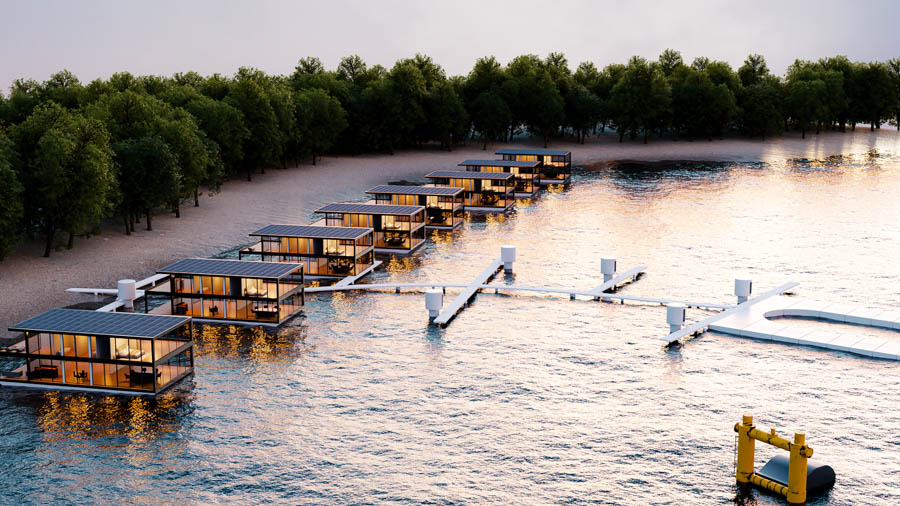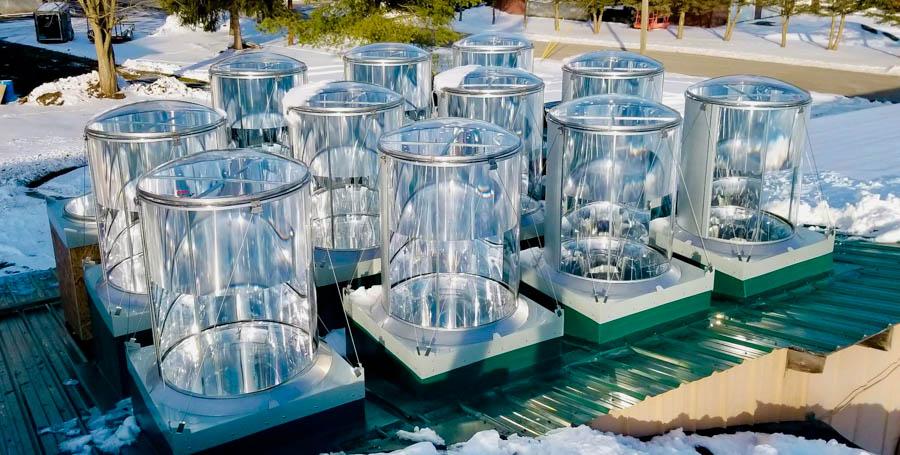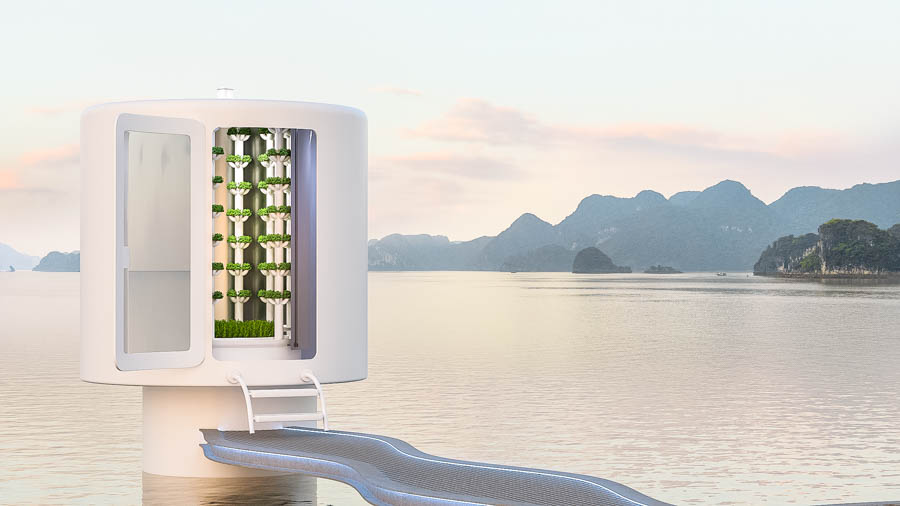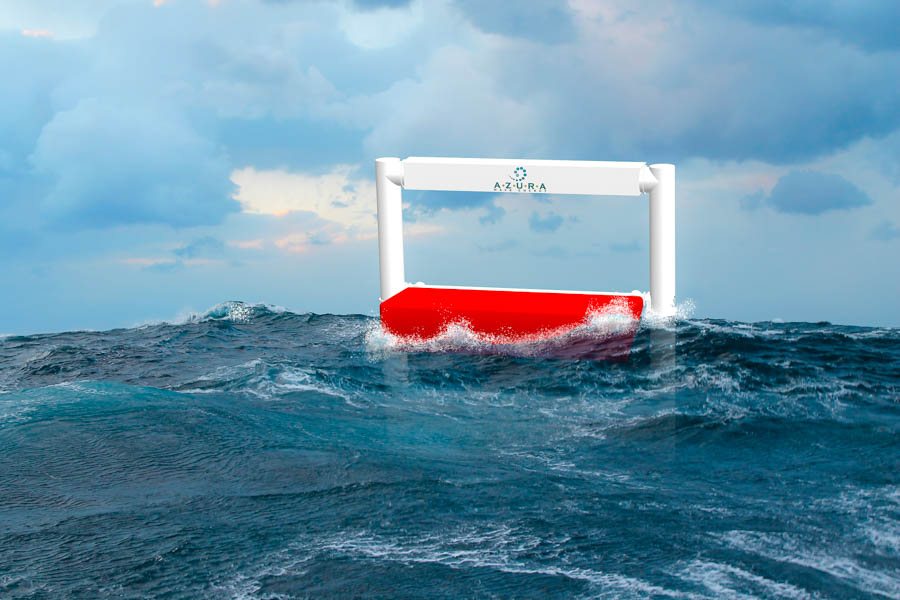Ocean Gardens
Tekmara founder Todd Kleperis hopes to make waves in sustainable agriculture.
SRQ MAGAZINE | JULY 2023 BY LAURA PAQUETTE IN PEOPLE

When people imagine a farm, they conjure up images of red barns and bucolic fields dotted with grazing cattle. They don’t envision floating ocean pods that harness wave power to grow sustainable crops. Todd Kleperis, the founder of Tekmara, a name he created to illustrate the concept of technology for tomorrow, has combined his robotics experience with a passion for coastal restoration to create the Ocean Pod, or OPOD, the world’s first self-sustaining garden at sea.

Kleperis worked in the robotics field in the Asia-Pacific region, where he observed the untapped energy source that waves provided. “We had a great robot, but it could only go so fast. However, I knew that the ocean had a tremendous amount of power that wasn’t yet being utilized,” he says. Kleperis’ fascination with wave power was just a drop in the bucket compared to his other marine interests, which he shared with his friend Chris, who passed away in 2021. “Chris was an incredible advocate for the ocean. He had submarines and his own marina. He did underwater research about munitions, which are a big target area. For decades since World War I, chemical weapons have been put in drums and dumped off the East and West coasts of the United States, so toxic substances like mustard gas are leaching into our oceans.” The pair had discussed starting up a coastal restoration project to address this issue, and Chris’ passing spurred Kleperis into action. “I thought that if I didn’t do this now, then I’d never do it,” he adds.
Inspired by waves’ potential as an energy source, he cobbled together technologies from various industries to create the OPOD, a vertical garden that floats atop the ocean. These eco-restorative gardens generate clean water, food and power from the sea. To provide fresh water to the growing plants, the pod utilizes wave power to desalinate the water, a system licensed to Tekmara from New Zealand. “With 180 of those systems, we could generate enough water for every single tap in New Zealand,” he says. To provide the plants with sunlight, the pod employs refractive light technology that does not give off heat. The pod’s sustainable innovations make it an ideal solution for a world facing ever-growing agricultural and climactic woes. “Agriculture is broken, and our soil is depleted. With the amount of drought predicted for the next 50 years, we need systems in place for people hard pressed for clean water.”

To test its food production efficacy, Kleperis began growing yellow and red oyster mushrooms inside of the pod. Within two days of launching the experiment, the pod began producing mushrooms, and 45 days later, the first crop awaited harvesting. Restaurants such as Bistr09 in San Antonio, Texas dove into the project, sourcing mushrooms for their dishes from Tekmara. Kojo, Selva and Jack Dusty at the Ritz-Carlton in Sarasota are in the process of trialing the mushrooms. According to Kleperis, the mushrooms’ quality is identical to those grown in a person’s backyard garden, making them an ideal topping for pizza, salads and other dishes. While the flavorful fungi are impressive, the pod supports more wonder below the ocean’s surface.
The pods will be placed along Florida’s coastline near mangroves, which act as giant filters. The red mangrove is one of the only plants on the planet able to desalinate water by itself. “With the power behind the mangroves and what we’re doing, we support eco-restorative features created by wave attenuation devices that create stacks underneath the pod that house bivalves, sea cucumbers, sea grasses, oysters and clams, creating a mini-reef area.” They also plan to introduce a red tide remediation technology to the pods this summer. Part of Enterprise Florida and the Tampa Bay Innovation Center, Tekmara hopes to draw in smart investors looking to conserve the ocean and help the company grow.

For now, the OPOD prototype, built in Kleperis’ garage over a three-month span, bobs by Siesta Key Circle on Siesta Key, on full display for people to see. “The Gulf Coast is a beautiful area with lots of visibility,” he says. “People are figuring out that there’s a really good thing down here. We just have to protect it.”